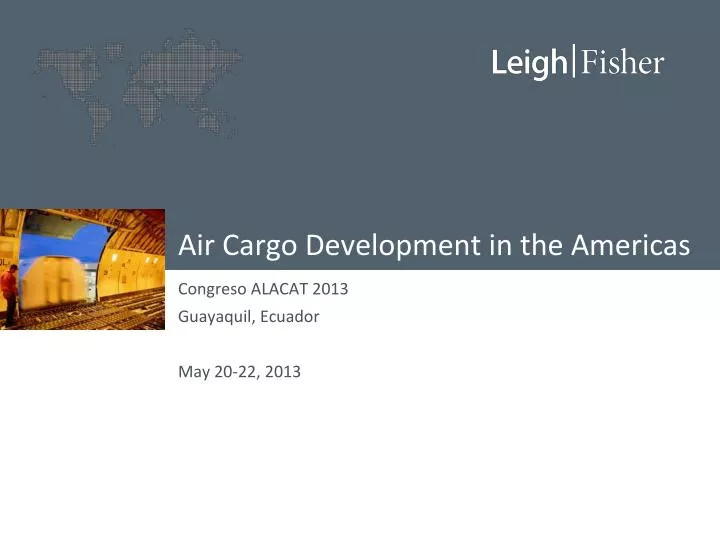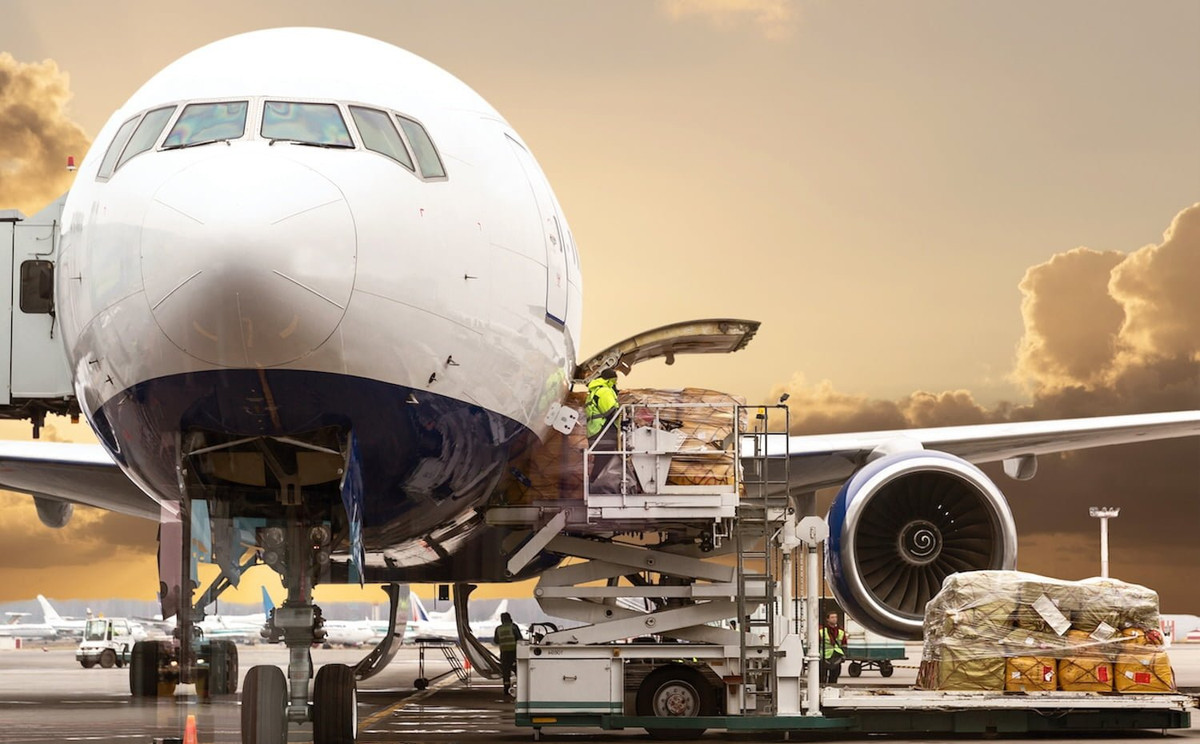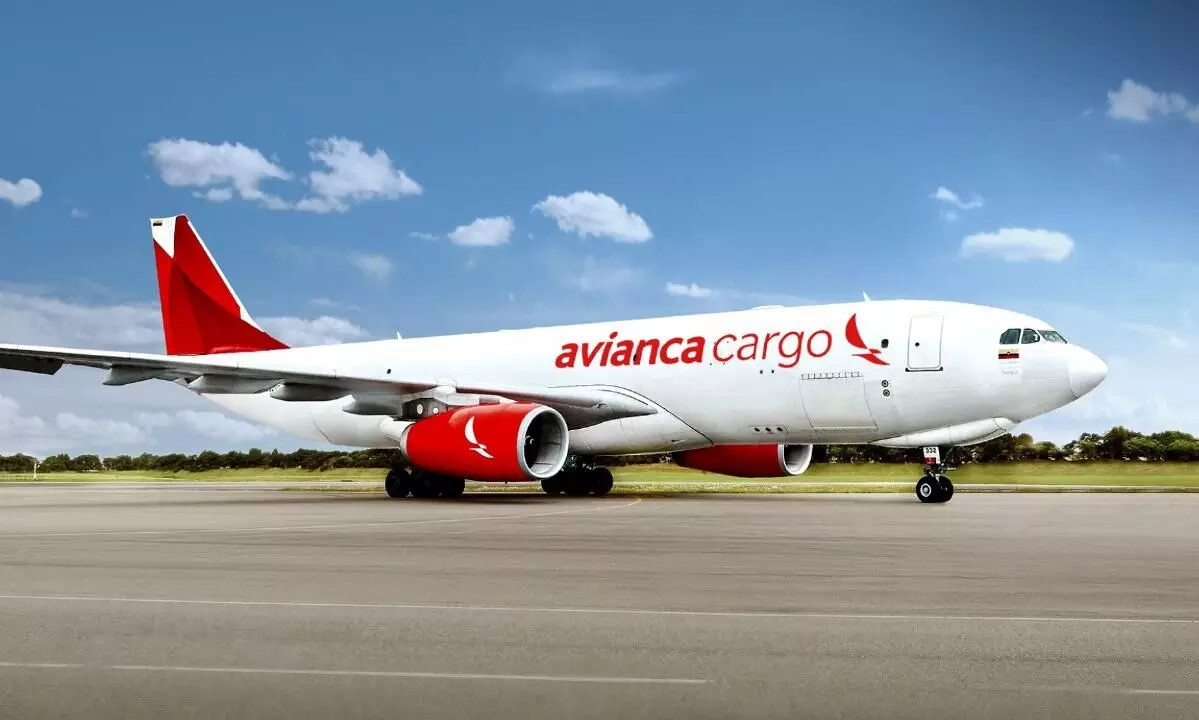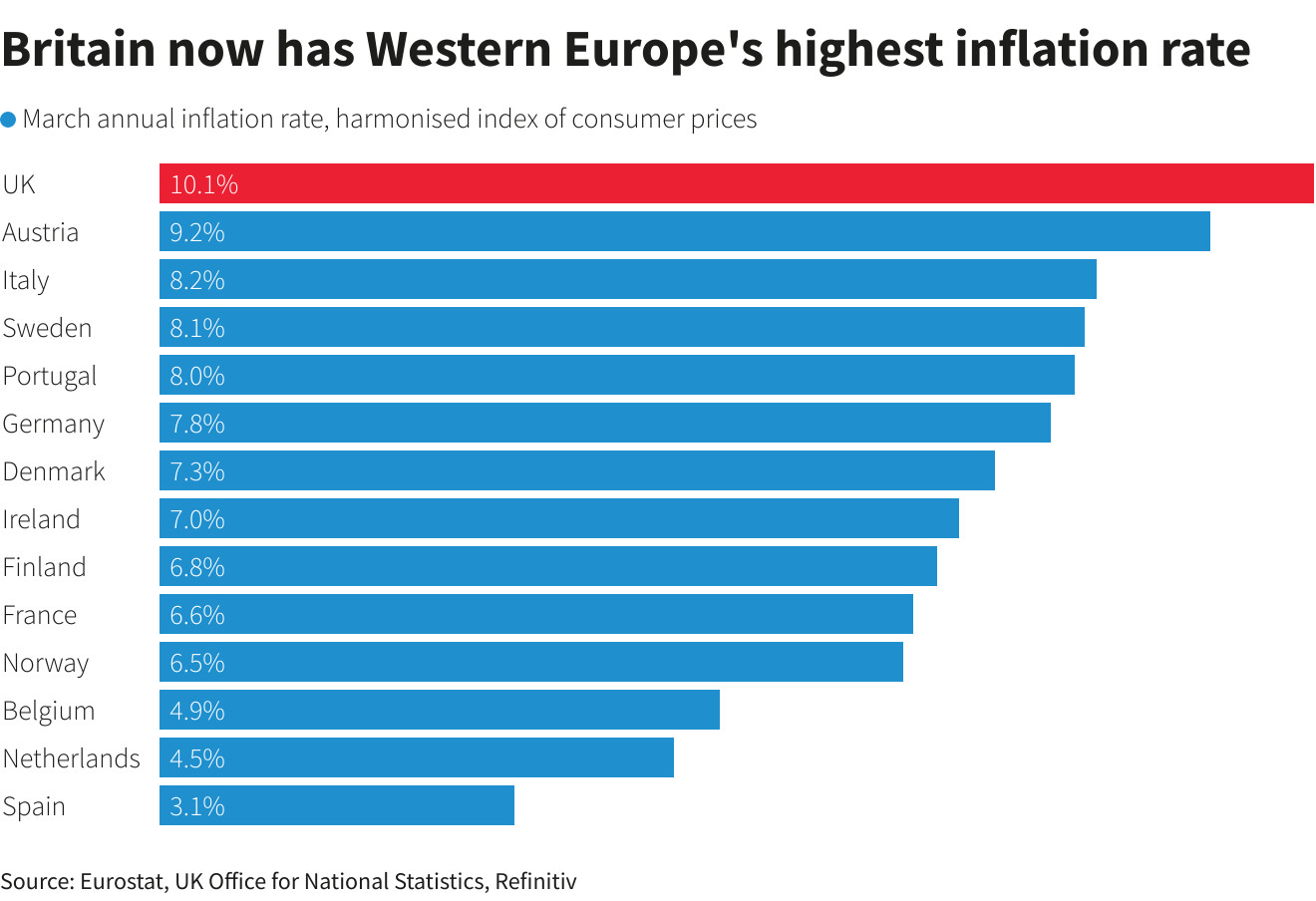This change has brought a need for strategic pricing, optimisation of capacity, and fostering stronger relationships between airlines, freight forwarders, and General Sales and Service Agents (GSSAs).
“We’ve adapted by sharpening our operational focus on efficiency and value-added services. We’ve streamlined our processes to respond faster to market shifts, and our digital initiatives have enabled better forecasting and allocation of space.
“With rates decreasing, airlines are looking for more effective partnerships, and we’ve been proactive in offering tailored solutions that maximise profitability without sacrificing service quality.”
Strategy for growth
In today’s environment, success hinges on a multi-faceted approach. Digitalisation is at the core, enabling data-driven decision-making and real-time visibility, which has become a must for both GSSAs and airlines. Sustainability is no longer optional—airlines and GSSAs need to invest in greener operations, reducing emissions through better planning.
Specialisation is also crucial, with sectors like e-commerce and pharmaceuticals requiring dedicated solutions. Our strategy at Group Concorde integrates these priorities, ensuring that we not only keep pace with the evolving demands but also lead in key areas.
“e-commerce continues to be a major driver of the air cargo industry, with the demand for fast, reliable delivery growing globally,” Chug explained. “In addition, the cool chain segment—particularly for pharmaceuticals, perishables, and healthcare products—has seen significant growth, with more focus on precision and compliance in handling temperature-sensitive cargo. Group Concorde has been investing in expertise required to serve these critical segments.”
Potential and pitfalls
Opportunity for GSSAs lies in the growth of emerging markets and the increasing demand for specialised services. Regions like Southeast Asia, Africa, and Latin America present untapped potential for air cargo growth. Additionally, the ongoing digitisation of supply chains presents a chance to further streamline operations and offer enhanced customer experiences.
“We are ready to capitalise on these opportunities by expanding our footprint in high-growth regions and continuing to invest in digital platforms that allow us to better serve our airline partners and clients,” Chug outlined.
Conversely, one of the key challenges facing the industry is economic uncertainty, which can affect demand for airfreight services. Geopolitical tensions, fluctuating fuel prices, and regulatory changes also present potential risks.
“At Group Concorde, we mitigate these risks through diversification—both in terms of geography and services. We operate across multiple regions and offer a wide range of solutions, from general cargo to specialised segments. This diversified approach enables us to remain resilient in the face of market volatility,” Chug added.
“For the remainder of 2024, our focus will remain on strengthening our digital capabilities, enhancing our sustainability initiatives, and expanding in key growth markets.
“We are targeting regions such as Southeast Asia, India, and the Middle East as they present significant growth opportunities in both general cargo and specialised sectors.
“By aligning our strategy with these trends, we aim to continue delivering value to our airline partners and customers while driving sustainable growth.”
Miami: Hub of the Americas
Miami International Airport (MIA) has long been a critical player in global logistics, positioning itself as a strategic hub for trade between North and South America.
“Historically, Miami has been a hub for both passenger and cargo operations, and this is deeply rooted in our geography,” Emir Pineda, Director of Marketing and Air Service Development for the Miami-Dade Aviation Department, said.
“Back when aviation first started, Miami was the launching point for air service into Latin America and the Caribbean,” Pineda recalled.
This geographic advantage has allowed MIA to dominate in freight services, accounting for 78 percent of exports and 82 percent of imports of trade volume with Latin America. However, its reach extends well beyond the Americas, with cargo services connecting to Europe, Asia, and Africa, making it a truly global gateway.
Room for expansion
As one of the largest cargo gateways in the world, Miami International Airport handles nearly three million tonnes of cargo annually, placing it among the top international freight hubs globally. However, with cargo volumes growing at an estimated 6 percent year-over-year, the airport is approaching its capacity. The new Vertical Integrated Cargo Community (VICC) project, a cornerstone of MIA’s expansion strategy, is designed to meet this rising demand and further cement the airport’s position for the foreseeable future against global competition.
“This new facility will be a game changer for us,” Pineda stated.
The VICC project, set to encompass 1.4 million sq ft of warehouse space, is an ambitious response to the booming demand driven by e-commerce, perishables, and time-sensitive goods. Once complete, the facility will bring MIA’s total cargo capacity to 5 million tonnes per year, securing its ability to meet growing global trade demands over the next 10 to 15 years.
The facility is expected to be equipped with cutting-edge technology, including robotics, digital sorting, and electronic storage systems. This modernisation will streamline cargo handling and make the process more efficient, significantly enhancing MIA’s ability to manage high volumes of cargo across various sectors.
“It’s all driven by e-commerce, perishables, and ongoing trade development,” Pineda explained.
MIA’s investment is not only aimed at increasing capacity but also at ensuring that the airport remains competitive in the global cargo market.
“This project will put us in a much stronger position globally,” Pineda noted.
A Global Reach: National Air Cargo’s Strategy
A successful global strategy in today’s rapidly changing logistics market is to carefully consider the tailored complexities and demands of a customer’s modern business operations.
Remaining agile and flexible in service and being receptive to unexpected disruptions is a prerequisite for successful strategy execution. Defining project solutions, establishing technology-integrated processes and entering into plans to capture newer commercial business lanes can support a renewed global strategy in the changing market.
“At National, the transformation from operating four aircraft to 13 aircraft in just five years has driven the current global strategy for the company,” Caterina Alf, Global Director of Business Development, National Air Cargo, stated.
“A robust fleet of Boeing 747-400 freighters and A330-200/300 passenger aircraft along with an extensive list of accessible third-party fleet types ensures that customers’ needs can be fulfilled anywhere, anytime across the globe at a moment’s notice.”
Sustainable service
One of the most critical challenges in the current global logistics space is maintaining a balance between cost efficiency and service quality. “We believe at National Air Cargo, ‘we are only as good as our last shipment’, and our paramount goal is to offer the most efficient, precise and affordable transportation solutions to our customers,” Alf outlined.
“We offer a range of options, including door-to-door solutions, customs brokerage, multimodal transportation, and part/full charter flights, which allows National to remain the competitive choice for our customers.”
Customer’s urgent shipping requirements are expedited with different services. In the case of an immediate charter, then ‘air only’ is the option. Alternative not-so-urgent shipments are offered as air-ocean-road. For a multimodal movement, a pre-planned move always has multiple options which allows for unique solutions.
In each of these modes of shipping, transparency and visibility from pick up to delivery are very important components to maintaining the highest level of service quality and customer satisfaction.
“National has heavily invested in our own real-time track and trace systems. With further automation, the systems aim to be more efficient. We also emphasise a ‘human touch’ approach where dedicated account management teams are updating customers regularly during the shipment,” Alf continued.
“In today’s highly competitive and demanding business environment, maintaining versatility is key to maintaining sustainable operations.”
Optimised approach
There are multiple levels of partnerships which ensure the success of each shipment delivery. A robust group of air, trucking, ocean, customs, ground handling, and maintenance partners enables National to curate the right project solution for each shipping request.
Collaboration enhances strength – National Airlines and National Air Cargo operate in more than 450 cities in a year requiring multiple levels of sophisticated collaboration from all facets of the industry.
Apart from organised alliances and interline agreements, numerous bilateral partnerships are devised especially in the various business operations regions offering reciprocating support to enhance the overall supply chain operations.
Flash strikes, regional disputes, changes in law, and adverse weather are a few external factors which cause disruptions to international supply chains. Aircraft on Ground (AOG) and operational disruptions are another set of challenges the airline and freight forwarding division has to take into consideration when ensuring smooth global operations.
Immediate backup plans, readjusting schedules and activating alternative routings are initial standard responses. However, long-term strategies by National include growing its fleet, operations hubs, and maintenance stations globally to support complicated operations.
“National offers highly customised freight forwarding, logistics and air charter services to industries across the spectrum, including defence, e-commerce, automotive, live animals, energy, pharmaceuticals, and dangerous goods,” Alf highlighted.
“Each shipment request is a project of its own. Therefore the nature of challenges and its impact varies from each shipment. From geopolitical issues to trade regulations, limited visibility of entire supply chain systems cause disruptions, yet National strives to find solutions to navigate the complicated restrictions.
“Embracing challenges, collaborating with all our regional operations hubs, involving subject matter experts, and following the highest level of compliance help us navigate these challenges and prepare us better for each shipment.”
ECS Group: Adapting to a Changing Landscape
Like in many markets, Covid-19 had a significant impact on air cargo capacity in the United States (US). Following the pandemic, there was a surge in passenger flights, exceeding pre-pandemic levels, which led to a rapid decline in yields.
In 2023-2024, there has been a stabilisation in both capacity and yields. Throughout 2024, the demand for e-commerce has shifted freighter capacity towards Asia, reducing availability out of the Americas.
Additionally, geopolitical events like the ongoing conflicts in Ukraine and Israel-Palestine, instability in the Suez Canal, and social events such as the US port strikes are affecting capacity and yields.
Looking ahead to 2025, the industry will need to monitor e-commerce trends, the outcomes of the US Presidential elections, and ongoing geopolitical and social events, as they could continue to influence capacity and yields in the region.
“In a world of constant change, only agile organisations like ECS Group can quickly adapt,” Adrien Thominet, ECS Group’s Executive Chairman, stated. “Our complete coverage of the Americas, strong financial position, and readiness for digital transformation enable us to respond to market demands effectively. This adaptability is further reinforced by our network across North, Central, and South America, which allows us to create valuable synergies.”
“ECS Group has reached a level of maturity in the Americas that enables us to seize opportunities and deliver state-of-the-art services to our airline partners,” Paco Ortega, ECS Group’s Regional Vice President Americas, added. “Our focus is on optimising existing capacity through targeted actions in capacity and yield management, supported by our strong digital capabilities.”
Regional position
Traditionally, ECS Group divided the Americas into two regions, North and South. With the acquisition of Americas GSA in late 2023, which has a strong presence in Central America, the company now offers full coverage across the Americas, from Canada to Chile.
This consolidation has positioned ECS Group as the leading sales organisation in the region. Moving forward, the company aims to create synergies and capitalise on opportunities across North, Central, and South America.
“Over the past few years, ECS Group has heavily invested in digital transformation, positioning us as a leader in the air cargo industry. Our goal is to bring this expertise to the Americas, leading the region in implementing tools such as marketplace development, dynamic pricing, business intelligence applications, and dynamic freighter capacity management,” Thominet highlighted.
“Through our partnership with CargoTech, we offer a comprehensive suite of digital solutions, including advanced revenue management tools. The American market holds immense potential for deploying these innovations.
“Our strategy leverages ECS Group’s digital capabilities, our extensive sales network in the Americas, and our ability to offer tailored solutions at a regional level. We also invest in feed and de-feed solutions to balance market capacities and are expanding our TCM presence in the region. Our strong connections with key forwarders and the use of advanced revenue management tools are crucial in maintaining our competitive edge.”
Changing conditions
The US consistently monitors and updates regulations, particularly those related to security through the Transportation Security Administration (TSA). Changes in TSA regulations, such as enhanced cargo screening and security protocols, can present challenges for air cargo operators.
However, the industry has demonstrated an ability to adapt and reorganise effectively to meet these evolving requirements, ensuring compliance while maintaining efficient operations.
“Miami International Airport (MIA) has become increasingly important as a hub, particularly with the growth of South American markets in recent years,” Ortega outlined. “This trend is likely to continue as some legacy carriers have redirected their freighter operations from South America to Asia, increasing the need for alternative solutions through Miami.”
“With our extensive experience, ECS Group has proven its ability to adapt to varying market conditions while maintaining a strong commercial presence and diverse service offerings,” Thominet concluded. “We believe that the industry is entering a new era, driven by digitalisation, which will enhance efficiency and unlock numerous business opportunities.”
Chicago Rockford Airport: Speed and Efficiency
As the airfreight sector in the Americas continues to adapt to changing market dynamics, emerging opportunities, such as the growth of the cool chain and increased importance of e-commerce, are requiring an increased efficiency
With both of these elements requiring speedy shipments, Chicago Rockford Airport (RFD) believes the nature of its operations, without the level of congestion seen at other airports, will allow it to handle increased volumes.
“This shipment has been very successful, and we are actively working to bring in several more, with the goal of establishing us as a centre of excellence for pharmaceutical logistics.”
“We are also collaborating with our handling agent to develop a separate Centre of Excellence for e-commerce,” Zack Oakley, Executive Director of Chicago Rockford International Airport, stated. “We anticipate an increase in e-commerce shipments from China, particularly from two major cities. However, a challenge we face is the current shortage of aircraft available to handle this demand. Some companies are acquiring new aircraft, but they are waiting for their deliveries to expand their control over cargo movement.”
Speed and sustainability
When discussing speed in logistics, it’s important to recognise that time is irreplaceable. While companies can save money on products, the time aspect is crucial to the entire commitment to efficiency.
Over the years, RFD has seen growing recognition within the shipping community about how much it can reduce landing and takeoff times by utilising its swift approach to moving items through customs and get into the hands of consumers.
“By choosing to arrive in Rockford, aircraft operators can save nearly an hour of operational time. This reduction translates to lower fuel consumption, less time spent in the air, and significant reductions in emissions, which ties into our sustainability goals,” Oakley outlined.
Taking further steps, RFD is implementing technological solutions to create a data platform that connects shippers directly with customs. This will enable faster distribution of products, eliminating the need to transport goods to congested hubs.
“We are dedicated to reducing the time-to-market for these products, ensuring that our clients can meet consumer demands effectively,” Ryan declared. “Moreover, efficiency extends beyond the airport; RFD is connected to an uncongested roadway system, facilitating smoother and quicker distribution. This creates a positive snowball effect throughout the entire logistics process.”
Partnerships work both ways
RFD’s airport partner Menzies Aviation has made significant strides, hand-in-hand with the airport, in terms of innovation and sustainability.
The strength of RFD’s partnerships play a critical role in its developments. The supply chain relies on a collective mindset where different partners support each other’s growth. Regardless of who holds the contract—whether it’s Menzies, UPS, or Amazon—every operation affects the reputation of Rockford Airport. If one partner encounters a problem, it reflects on all of the airport.
After all, the supply chain is only as strong as its weakest link. Each component must function efficiently. Communication is key in identifying and removing any barriers partners may face.
“We maintain a close relationship with all our partners to ensure they meet customer needs and expectations,” Ryan outlined. “We regularly engage with our handlers, fuellers, and the truckers who serve the airport, seeking feedback on how we can improve. Rockford has always been proactive in this regard.”
“All airport facilities are designed with future automation and electrification in mind,” Oakley highlighted. “This ensures that our partners can continuously adapt their operations in an efficient and scalable manner.
“Menzies benefits greatly from the proximity of their warehouse to the aircraft. They are able to run an all-transporter operation that efficiently moves equipment to and from the loading and unloading areas. This approach not only speeds up operations but also enhances the security of the equipment while reducing the overall movement of vehicles on-site.



















